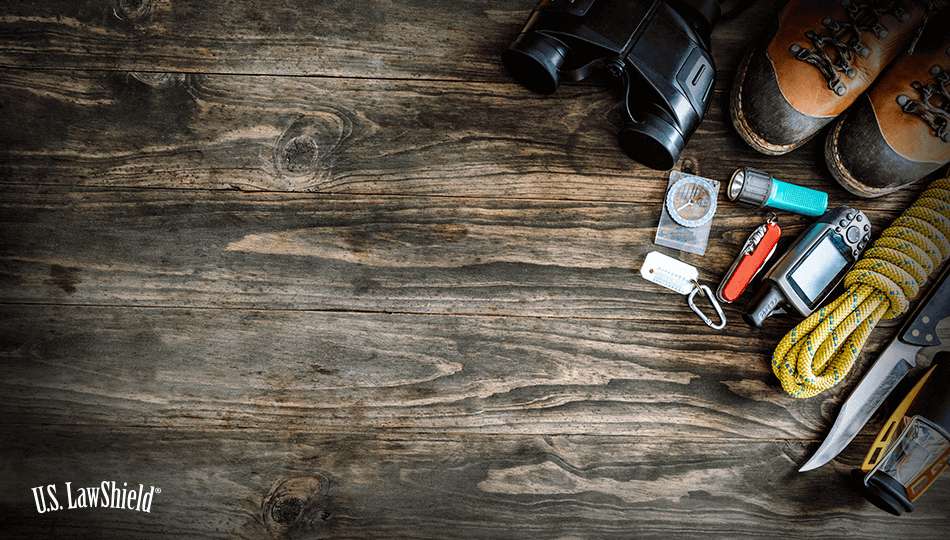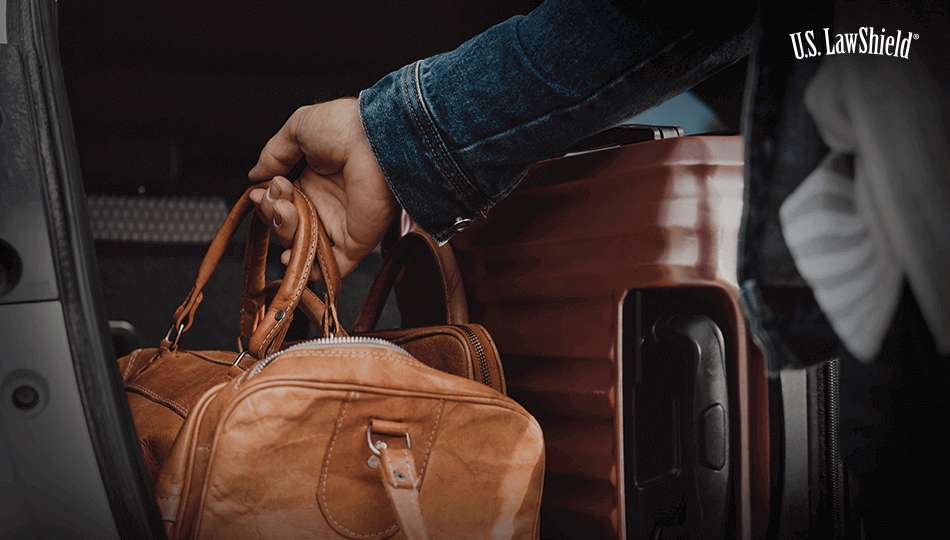
The time for holiday shopping and family get-together preparations is about to reach its summit. People are rushing to and from their vehicles with hardly a second glance at their surroundings. One distracted moment is all a criminal needs to get into your vehicle to steal your belongings, or worse, make you the victim of an assault or robbery. Situational awareness is key: be mindful of your surroundings, gravitate toward lit areas in parking lots, scan the area for any possible threat, and have a plan in mind for retreat or cover. But what happens when a law-abiding gun owner finds themselves in the sights of a criminal?
During the holiday season, many holiday shoppers are caught unaware by theft, robbery, or burglary of their vehicles. It is critical that you, as a law-abiding gun owner, understand what legal response is allowable and justified for each of these criminal actions before you find yourself in the middle of one of these terrifying incidents.
Understanding Justified Use of Force
Especially if you carry a handgun, knowing the law on the justified use of force and deadly force to prevent a crime will help you develop a plan before an incident takes place. Theft, robbery, and burglary are all too common around the holidays. We don’t want you to become a victim, so let’s address each of these.
Theft
In Florida, theft occurs when a person knowingly obtains or uses, or endeavors to obtain or to use, the property of another with the intent to, either temporarily or permanently deprive the other person of a right to the property or a benefit from the property; or appropriate the property to his or her own use or to the use of any person who is not entitled to the use of the property.
Generally, theft alone with no other aggravating factors does not justify the use of deadly force.
Robbery
Robbery occurs when a perpetrator takes the money or property which may be the subject of larceny from the person or custody of another, with intent to either permanently or temporarily deprive the person or owner of the money or property, and in the course of the taking, uses force, violence, assault or putting in fear. Robbery, as opposed to theft, does create a risk of serious bodily injury or death.
In Florida, robbery is considered a forcible felony. Fla. Stat. § 776.012 allows the threat of or actual use of deadly force to thwart a robbery. Under this statute, the defender must reasonably believe that using or threatening to use deadly force is necessary to prevent the imminent commission of a forcible felony.
Burglary
Burglary of an unoccupied vehicle is another crime that is common in parking lots around the holidays. Burglary of a vehicle in Florida is a third-degree felony which occurs when a perpetrator, when in the course of committing the offense, does not make an assault or battery and is not and does not become armed with a dangerous weapon or explosive, and enters or remains in or any part of an unoccupied vehicle with intent to commit an offense therein.
There are many locations which may be “burglarized” in Florida; your dwelling, an office building, and your vehicle, to name a few. Though the crime of “burglary” is named as a forcible felony under Fla. Stat. § 776.08, it does not specify whether this term encompasses all types of burglary. Since burglary of your unoccupied vehicle does not involve the use or threat of force against a person, it may not qualify as a forcible felony and we urge extreme caution before using deadly force.
Juries often do not feel that deadly force is necessary to prevent the theft of property from an unoccupied vehicle. This is a case of just because you can do something, does not mean you should. If someone is stealing your property from an unoccupied vehicle, the best course of action is to call the police, not open fire.
Armed with situational awareness and an understanding of the self-defense laws in Florida, you can protect yourself from the criminal element and keep yourself on the right side of the law this holiday season.
For any further questions regarding self-defense over the holiday season, call U.S. LawShield and ask to speak to your Independent Program Attorney.
The preceding should not be construed as legal advice nor the creation of an attorney-client relationship. This is not an endorsement or solicitation for any service. Your situation may be different, so please contact your attorney regarding your specific circumstances. Because the laws, judges, juries, and prosecutors vary from location to location, similar or even identical facts and circumstances to those described in this presentation may result in significantly different legal outcomes. This presentation is by no means a guarantee or promise of any particular legal outcome, positive, negative, or otherwise.




Can I lawfully interrupt the taking of my property